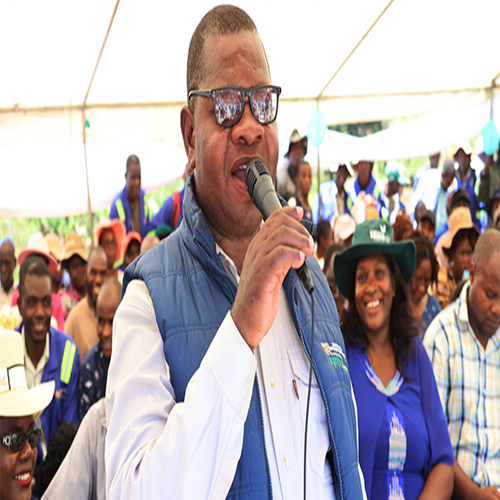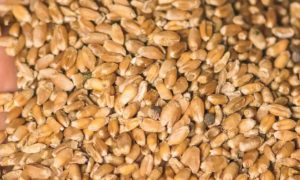$220,8bn to improve irrigation schemes

AS part of a cocktail of measures to drought proof agriculture and guarantee food security at household and national levels Government has set aside $220.8 billion towards Irrigation rehabilitation to reduce reliance on rain-fed agriculture, which continues to be affected by climatic shocks.
About 350 000 hectares of cereals are expected to be put under irrigable land in order to produce 1, 8 million tonnes that are required for the country to become food self-sufficiency.
The Smallholder Irrigation Revitalisation Programme targets to rehabilitate 5 202 ha in order to enhance food security, including adaptation and mitigation of climate change shocks among smallholder farmers.
Lands, Agriculture, Fisheries, Water and Rural Development permanent secretary Professor Obert Jiri said every inch of irrigable land must be put to the staple crop including maize and traditional grains adding that irrigation schemes must be prioritised this season to ensure that the country produces enough in the face of El Nino period.
“We can also climate proof through irrigation development to a larger scale. We also want more irrigation schemes. Out of the 416 irrigation schemes we have in the country about 331 were put under wheat which means that they are operational. If we fix them, we are looking at another 8 000 hectares. These are things which we can do this season to ensure that every inch of irrigable land is put to cereal crop production, that way we can climate-proof our agriculture to ensure food security,’’ he said.
In a recent interview farmers said irrigation schemes are critical to improve agricultural production adding that Government’s move to introduce the system is greatly appreciated.
They also said irrigation schemes constructed so far have turned the areas into green belts. One of the beneficiaries of Bubi- Lupane irrigation scheme, Mr Martin Hlongwane said the scheme has helped to transform subsistence agriculture at household level into commercial agriculture as part of rural development and industrialisation in line with vision 2030.
He said following the revitalisation of the scheme in 2021, they have started reaping the rewards of their labour.
“We are unemployed as a family, we struggled to make ends meet until the Government availed us of this opportunity. We are grateful we can now afford to send our children to school,” he said.
Another beneficiary Mrs Margaret Simango said through their efforts, they are contributing towards boosting the country’s food security.
“The irrigation scheme has enabled my family to be food secure. I am also glad that in my small way, I am also contributing to Zimbabwe’s food security,” she said.
Source Link: https://www.herald.co.zw/2208bn-to-improve-irrigation-schemes/
















